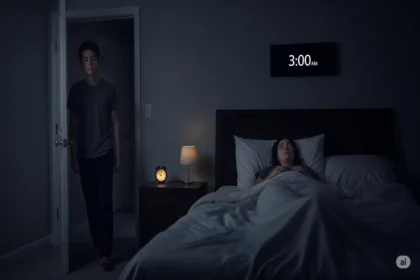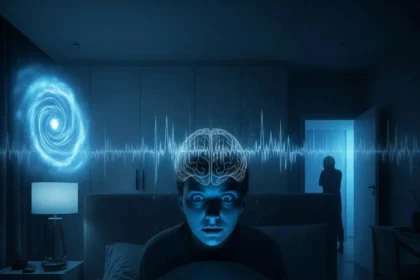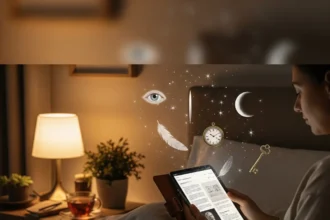What if the world you wander in your sleep—the one where you soar over cities or face monsters in shadowy alleys—isn’t just a dream but a glimpse into a deeper code of your mind? Picture this: you wake up, heart pounding, from a dream so real you can still feel the wind on your face or the sting of a imagined wound. For a moment, you’re caught between worlds, unsure which is true. The Matrix (1999), the Wachowskis’ iconic sci-fi thriller, might just hold the key to unraveling this mystery. Could its tale of simulated realities and questioned truths shine a light on the enigma of dreams? Let’s take the red pill and explore how this cinematic masterpiece offers clues to why we dream, what they mean, and whether they’re more real than we think.
In The Matrix, Neo discovers his reality is a digital illusion, a simulated world crafted by machines to enslave humanity. Sound familiar? Every night, your brain spins up its own simulations—dreams that feel as vivid as waking life. You might smell fresh-baked bread in a dream café or feel the rush of a high-speed chase, all without leaving your bed. These experiences are so convincing that neuroscientists like Christof Koch compare dreams to a “personal virtual reality.” Just as the Matrix tricks its inhabitants with flawless sensory detail, your brain builds entire worlds from scratch, raising a wild question: are dreams our mind’s own Matrix, a sandbox for testing reality itself?
Why would our brain bother with such elaborate nightly simulations? The Matrix suggests one answer: control. The machines use their simulation to keep humans docile, unaware of their true existence. Dreams might play a similar role, not to trap us but to stabilize us. Imagine your mind as a chef, stirring up dreams to process the day’s emotional ingredients. That dream where you’re late for a meeting? It could be your brain simmering down workplace stress. Research from Harvard’s Deirdre Barrett supports this, suggesting dreams help us rehearse solutions to real-life problems, much like Neo’s training simulations prepare him to fight agents. Our dreams might be a subconscious control room, keeping our emotional and cognitive gears running smoothly.
Then there’s the puzzle of perception. In The Matrix, Neo learns to bend the rules of his world by reshaping how he perceives it—think of the iconic “there is no spoon” moment. Dreams echo this. In a lucid dream, when you realize you’re dreaming, you can rewrite the script: fly, summon a dragon, or turn a nightmare into a party. This mirrors Neo’s ability to hack the Matrix by seeing it as code. Studies from the University of Adelaide show that lucid dreamers engage brain regions tied to self-awareness, suggesting dreams could be a playground for experimenting with perception in ways we can’t while awake. What if dreams are training us to question reality, to see the world not as it is but as it could be?
Not every dream feels like a game, though. Nightmares, like glitches in the Matrix—those eerie moments of déjà vu or sudden agent attacks—can shake us awake, questioning what’s real. These disruptions might reveal a deeper purpose. Just as glitches in The Matrix expose its artificiality, nightmares might signal our brain’s struggle to process unresolved conflicts. For someone with trauma, dreams can replay painful scenes, almost like a system trying to debug itself. Neuroscientist Matthew Walker argues that dreams help us integrate tough emotions, much like Neo’s journey forces him to face the truth of his reality. Nightmares, then, might be our mind’s way of flagging bugs in our emotional code.
Here’s a bolder idea: what if dreams aren’t just simulations but peeks into something more? The Matrix plays with nested realities—dreams within dreams—where waking up from one simulation lands Neo in another. Some dreams feel so otherworldly, like visiting a city you’ve never seen yet know by heart, that they spark questions. Are we tapping into alternate realities, as philosopher Nick Bostrom muses in his simulation hypothesis? Probably not, but the déjà vu of dreaming about a place you later visit can feel like a glitch in your personal Matrix, hinting at connections we don’t yet understand.
Picture your brain as a cosmic DJ, remixing memories, emotions, and sensations into a nightly playlist of dreams. Like Neo learning to see the Matrix’s green code, understanding dreams means recognizing they’re not random noise—they’re our mind’s attempt to make sense of reality, process feelings, and maybe even explore what lies beyond. The next time you wake up disoriented, wondering where you’ve been, ask yourself: was that just a dream, or did you just slip out of your own private Matrix? Maybe, just maybe, your dreams are whispering truths about reality that you’re only beginning to decode.
Disclaimer: The information provided in this article is for general informational purposes only and does not constitute medical advice. It is not a substitute for professional medical advice, diagnosis, or treatment. Always seek the advice of your physician or other qualified health provider with any questions you may have regarding a medical condition. Never disregard professional medical advice or delay in seeking it because of something you have read on this website.














